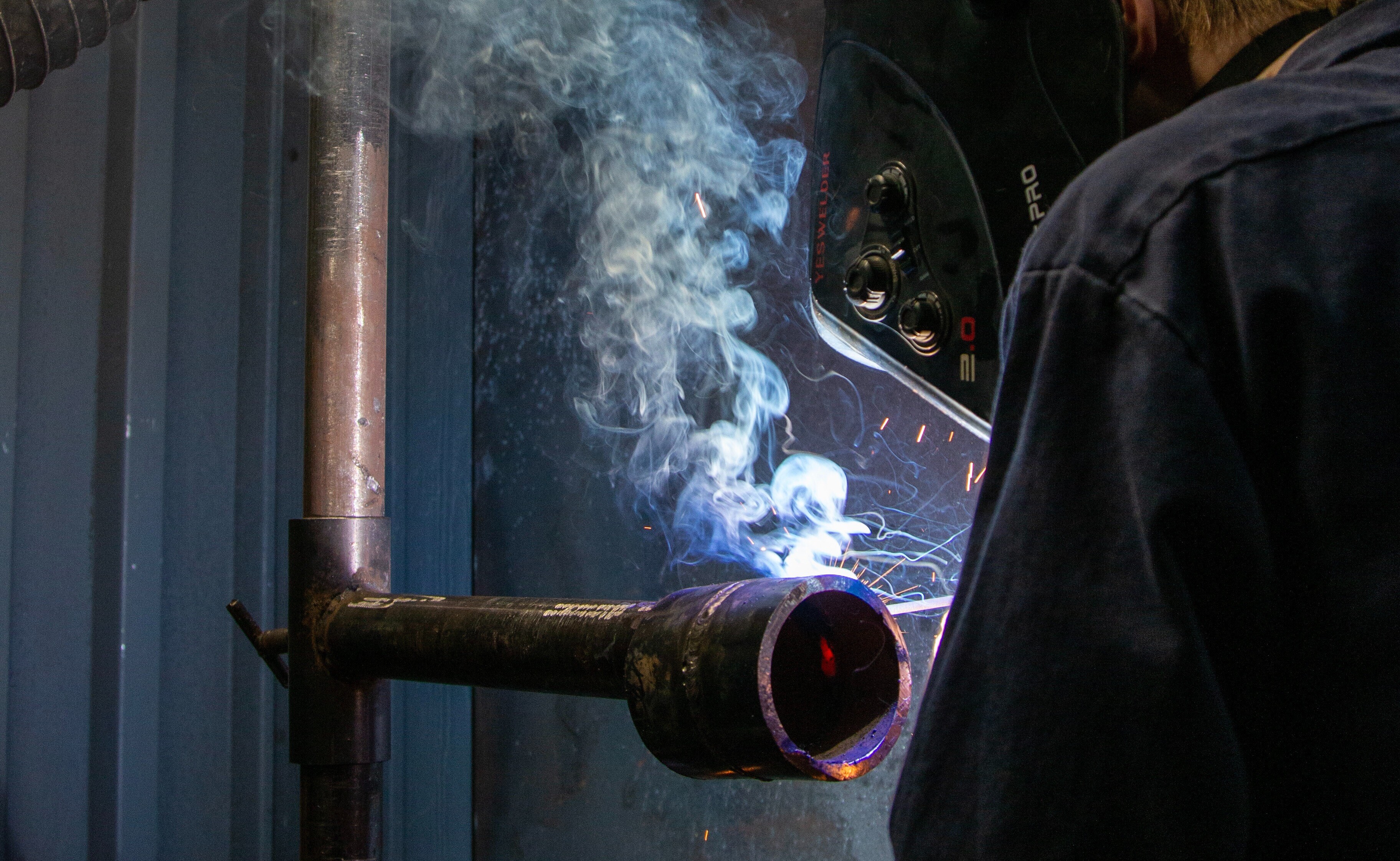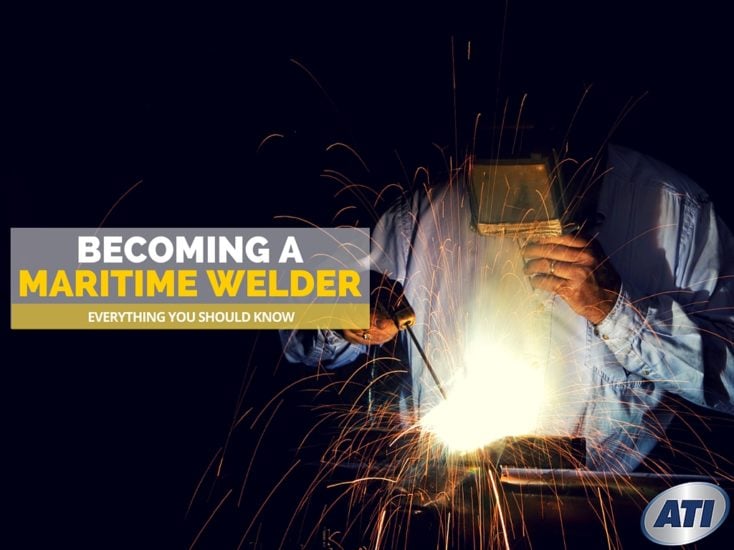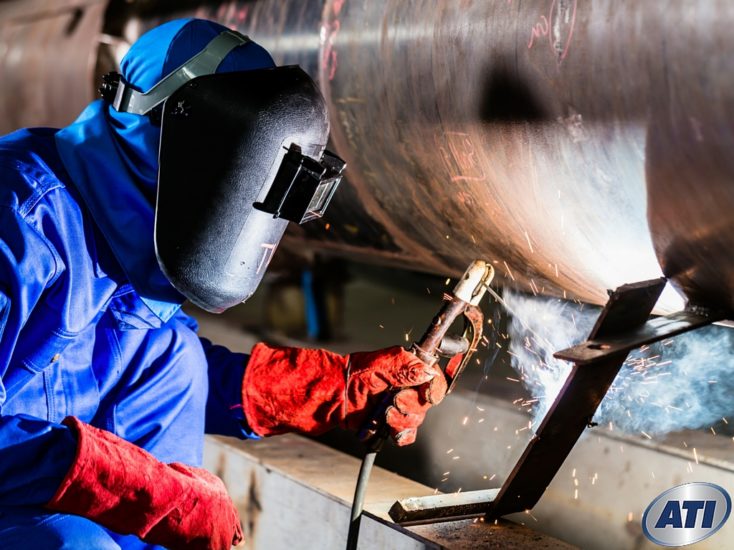What is a Pipe Welder?
Pipe welders are the unsung heroes of many industries, ensuring that everything from our water supply to industrial processes runs smoothly. While pipe welding can be a fulfilling career, not much is known about the profession. This is a starter guide to what a pipe welder is.
What Does a Pipe Welder Do?
A pipe welder uses welding equipment to bend, alter, and repair metal pipes and fittings. Their work ranges from structural steel supports to oil pipelines, inspecting pipes, performing safety audits, and operating electric and gas welding equipment. They need a solid understanding of the metal components and materials they work with, ensuring everything is done safely and effectively. The primary responsibilities of pipe welders include:
- Reading Blueprints and Specifications: Understanding technical drawings and specifications to determine the exact requirements for the welding job.
- Selecting Appropriate Welding Techniques: Choosing the correct welding methods and materials for the job, which may include techniques such as TIG (Tungsten Inert Gas), MIG (Metal Inert Gas), or arc welding.
- Preparing Materials: Cleaning, cutting, and shaping the pipes to be welded, ensuring they fit together correctly.
- Welding Pipes: Using welding equipment to join metal pipes together, ensuring a strong and leak-proof seal.
- Inspecting Welds: Checking completed welds for quality and adherence to specifications, often using tools and techniques like X-rays or ultrasound.
- Maintaining Equipment: Keeping welding equipment in good working order, performing routine maintenance and repairs as needed.
- Safety Compliance: Following safety protocols and regulations to prevent accidents and ensure a safe working environment.
- Collaborating with Other Trades: Working alongside other tradespeople, such as pipefitters and electricians, to complete projects efficiently and effectively.

How to Become a Pipe Welder?
Becoming a pipe welder involves a combination of education, training, and certification. This guide is to help you get started:
1. Education-
- High School Diploma or GED: Basic education is typically required. Focus on subjects like math, science, and shop classes if available
-
- Technical School or Community College: Enroll in a welding program. These programs offer hands-on training and teach the fundamentals of welding
- Apprenticeships: Seek out apprenticeships through local unions or companies. Apprenticeships provide on-the-job training under the supervision of experienced welders
-
- American Welding Society (AWS) Certification: Obtain certifications such as Certified Welder (CW) through AWS. Different certifications may be required depending on the type of welding and industry.
-
- Other Certifications: Depending on the specific field (e.g., oil and gas, construction), additional certifications might be necessary.
-
- Focus on Pipe Welding: Specialize in pipe welding by taking specific courses or getting certifications in this area. Pipe welding involves different
By following these steps, you can develop the skills and qualifications needed to become a successful pipe welder. Pipe welder jobs are available in various settings, including aerospace factories, nuclear power plants, armed forces facilities, petroleum rigs, auto fabricating facilities, and construction sites. Essential skills include reading schematics and blueprints, assembling pipe systems, adhering to safety guidelines, and maintaining tools and materials. Proficiency with welding equipment, excellent communication, technical expertise, and attention to detail are also crucial.
Types of Pipe Welder Jobs
Pipe welding is a specialized field within the welding industry, and there are various types of pipe welder jobs depending on the industry and specific requirements. These are some common types of pipe welder jobs:
- Industrial Pipe Welder
- Construction Pipe Welder
- Shipyard Pipe Welder
- Pipeline Welder
- Maintenance Pipe Welder
- Boilermaker Welder
- Underwater Pipe Welder
- Nuclear Pipe Welder
- HVAC Pipe Welders
- Fabrication Shop Welder
Each type of pipe welder job may require specific skills, certifications, and experience. Specializing in a particular area can lead to more job opportunities and higher earning potential in that field.
Job Description of a Pipe Welder
Job Summary:
- A Pipe Welder is responsible for joining, fabricating, and repairing metal pipes for various systems such as water, gas, oil, and other liquids. The welder must ensure all welds are done to code and specifications, ensuring the structural integrity and safety of the piping systems. This role involves reading blueprints, using welding equipment, and adhering to safety regulations.
Key Responsibilities:
- Welding and Fabrication: Perform welding tasks on metal pipes using various welding techniques such as MIG, TIG, Stick, and Arc welding.
- Blueprint Reading: Interpret and follow blueprints, schematics, and welding symbols to determine the layout and sequence of welding operations.
- Pipe Preparation: Cut, bevel, and prepare pipes for welding, ensuring precise alignment and fit-up.
- Inspection: Inspect completed welds to ensure they meet industry standards and specifications. Perform quality checks and repairs as needed.
- Maintenance: Maintain welding equipment and tools, ensuring they are in good working condition.
- Safety Compliance: Adhere to all safety protocols and guidelines to ensure a safe working environment. Use protective gear and follow procedures to prevent accidents.
- Collaboration: Work with other welders, fabricators, and team members to complete projects efficiently and accurately.
Qualifications:
- Education: High school diploma or GED. Completion of a technical school welding program is preferred.
- Experience: Proven experience as a welder, with specific experience in pipe welding preferred.
- Certifications: AWS Certified Welder (CW) or equivalent certification. Additional certifications based on industry requirements (e.g., ASME).
Skills:
- Proficiency in various welding techniques (MIG, TIG, Stick, Arc).
- Ability to read and interpret blueprints, schematics, and welding symbols.
- Strong attention to detail and quality.
- Good manual dexterity and physical stamina.
- Knowledge of safety protocols and procedures.
Working Conditions:
- Environment: Work may be performed indoors or outdoors, often in confined spaces or at heights. Conditions may include exposure to heat, noise, and hazardous materials.
- Physical Demands: The role requires physical strength, endurance, and the ability to lift heavy materials. It also involves standing, bending, and working in various positions for extended periods.
Career Development:
- Opportunities for advancement through additional certifications and specialized training.
- Potential to move into supervisory or managerial roles within the welding or construction industry.
Top 5 Reasons to Become a Pipe Welder
1. High Demand and Job Security-
- Growing Industry: The demand for skilled pipe welders is strong across various industries, including construction, oil and gas, manufacturing, and utilities.
-
- Job Stability: Skilled trades like welding are less likely to be outsourced or replaced by automation, ensuring long-term job stability.
-
- Attractive Pay: Pipe welders often earn competitive wages, with the potential for overtime and bonuses, especially in high-demand sectors.
-
- Benefits: Many employers offer comprehensive benefits packages, including health insurance, retirement plans, and paid time off.
-
- Career Growth: With experience and additional certifications, welders can advance to supervisory or management positions or specialize in high-paying areas like underwater welding or nuclear welding.
-
- Continuous Learning: The welding field offers numerous opportunities for professional development and skills enhancement through certifications and specialized training.
-
- Diverse Settings: Pipe welders work in various environments, from construction sites and factories to shipyards and offshore oil rigs. This variety can keep the job interesting and challenging.
-
- Travel Opportunities: For those who enjoy traveling, welding jobs can provide opportunities to work in different locations, including international projects.
-
- Tangible Results: Welding provides the satisfaction of creating and repairing tangible structures and systems. Seeing the direct impact of your work can be highly rewarding.
-
- Skill Mastery: Welding is a craft that requires precision and expertise. Mastering this skill can provide a sense of pride and accomplishment.
- Skill Mastery: Welding is a craft that requires precision and expertise. Mastering this skill can provide a sense of pride and accomplishment.
Additional Considerations
Pipe welders play a crucial role in various industries by joining, fabricating, and repairing metal pipes that are essential for transporting liquids and gases. This profession requires a combination of technical skills, hands-on training, and certifications to ensure the safety and efficiency of the piping systems. With a strong demand for skilled welders, competitive salaries, and opportunities for career advancement, becoming a pipe welder can be a highly rewarding and stable career choice. Whether working in construction, manufacturing, or specialized fields like underwater or nuclear welding, pipe welders enjoy a diverse and fulfilling work environment. By mastering this craft, pipe welders not only build critical infrastructure but also achieve a sense of pride and accomplishment in their work. For more information visit here.
Industry Knowledge
Welcome to the Advanced Technology Institute's Blog, your resource for industry insights and discussions on technologies shaping the future of automotive, heavy vehicle, hvac, welding, and other related career paths.
Explore how ATI's curriculum and hands-on learning opportunities can propel your career in the tech-driven world.



.jpg)
